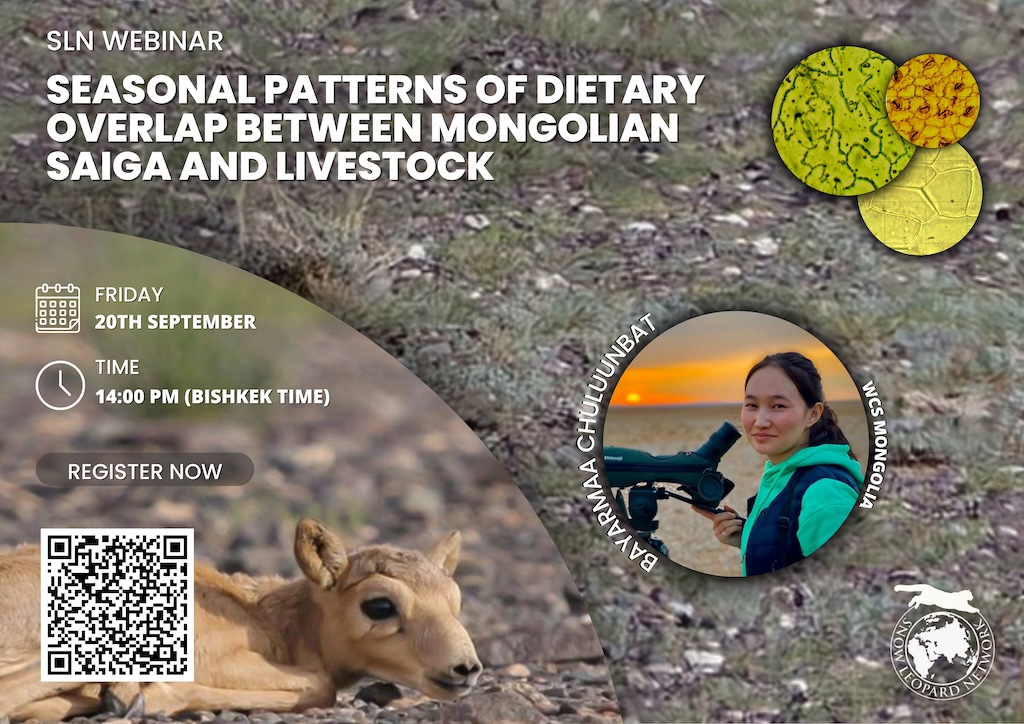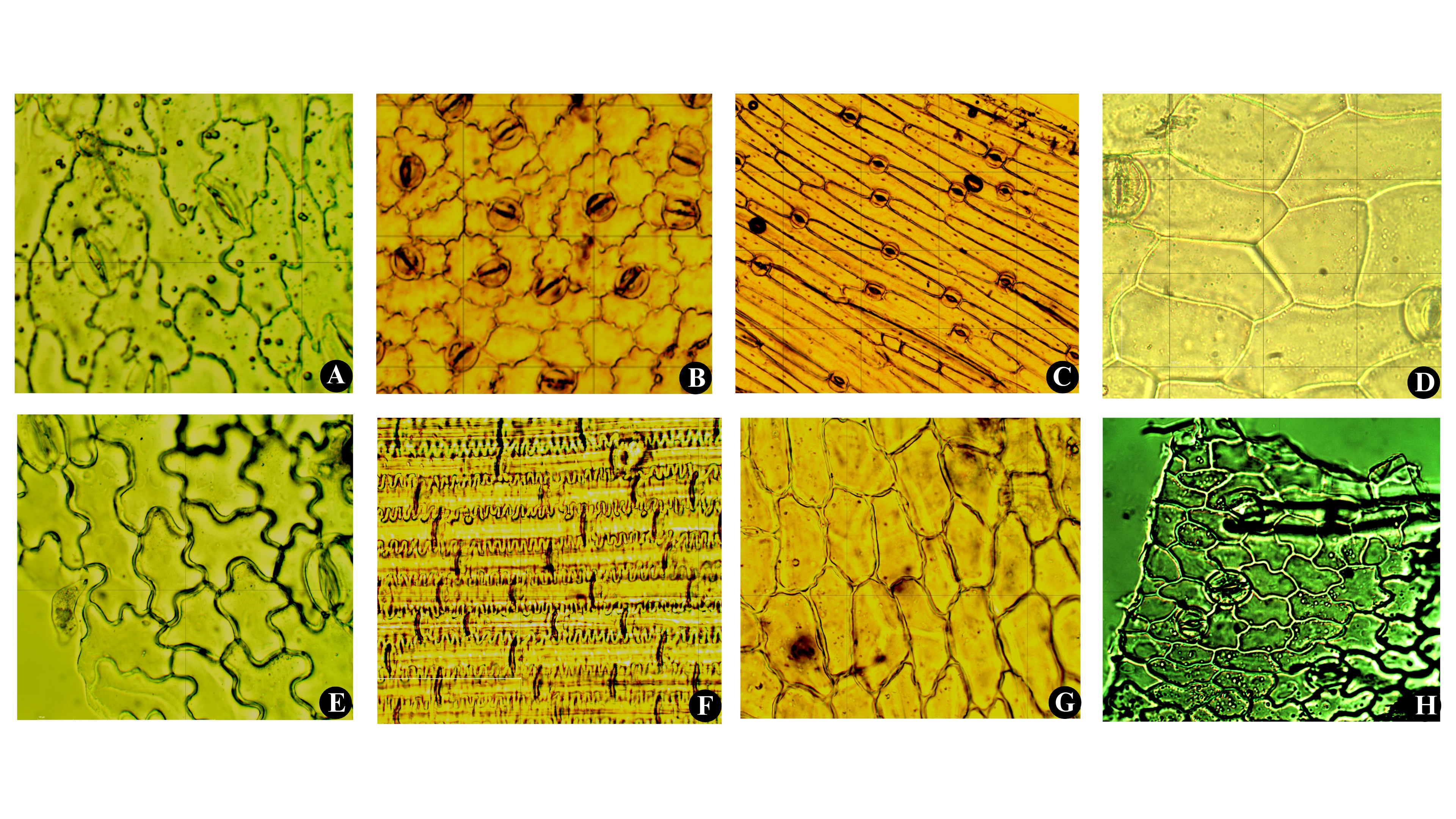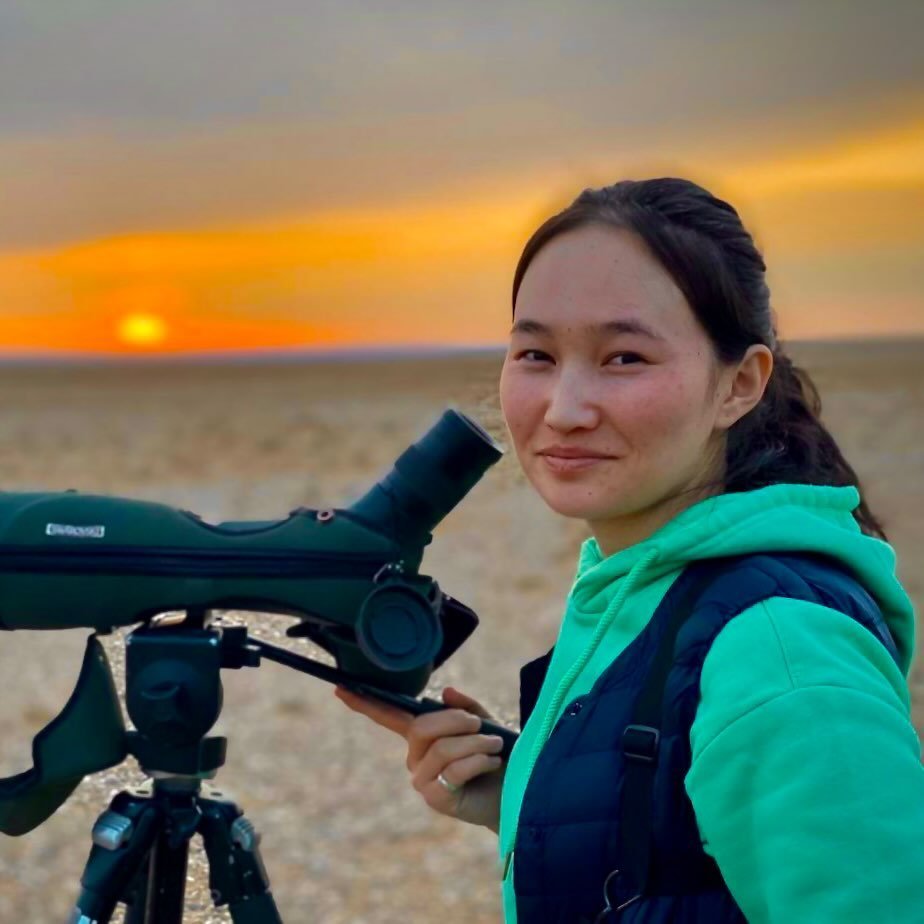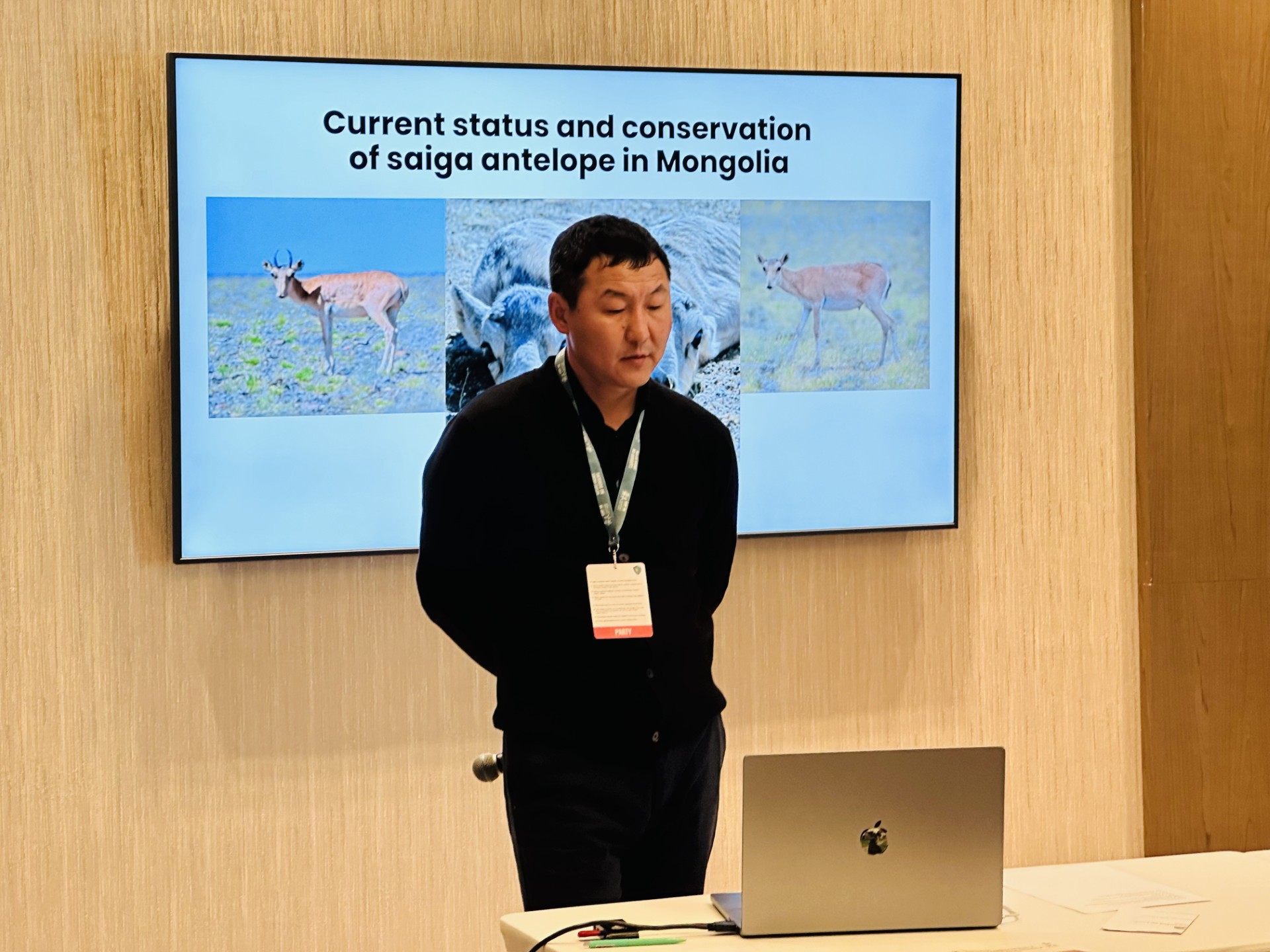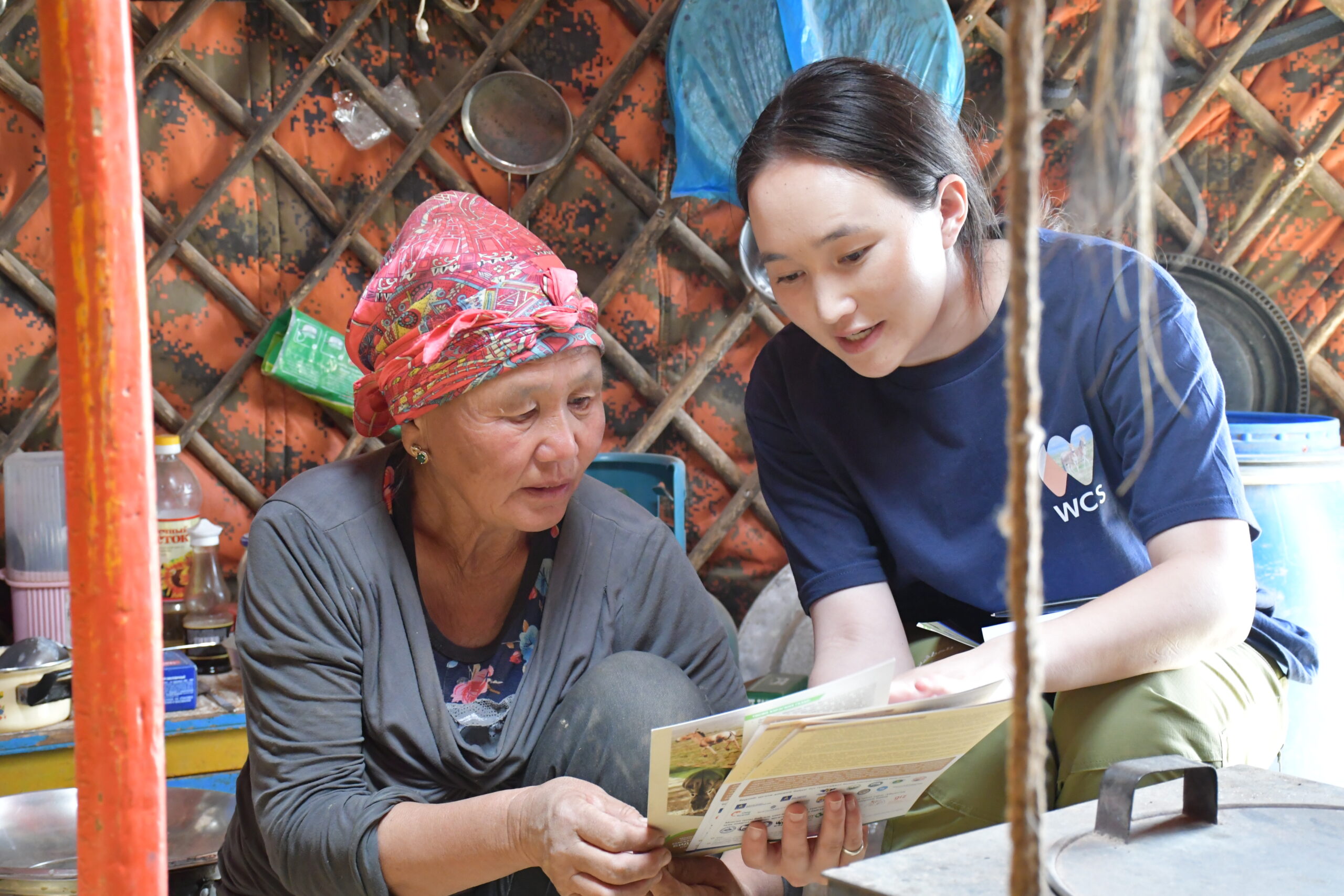The Snow Leopard Network invites you to join us for our webinar with Bayarmaa Chuluunbat, WCS – Mongolia, on Friday, 20th September, 2024.
About the Talk:
Understanding the diet composition of animals is essential for comprehending their ecology and developing effective conservation strategies, especially for endangered species. In the depressions of Great Lakes of western Mongolia, the critically endangered Mongolian saiga coexists year-round with livestock. This research aims to determine the seasonal dietary overlap between the Mongolian saiga and livestock using the microhistological method.
Bayarmaa has also created a microhistological reference key for over 120 different plant species in the steppe and desert steppe. This key is vital for determining the diet of herbivores and understanding their dietary habits in these regions. Given the widespread practice of livestock husbandry in Mongolia, understanding the dietary habits and overlaps between wildlife and livestock is crucial for conservation efforts and rangeland management. This is particularly important for endangered ungulates, many of which are found in the steppe and desert steppe. Additionally, these regions are significant for snow leopard conservation, as their diet includes these herbivores.
About our Speaker:
Bayarmaa Chuluunbat is a Wildlife Biologist at the Wildlife Conservation Society and one of the young researchers in Mongolia. Her journey in wildlife conservation began at the age of 14, when she became involved in eco-clubs focused on protecting endangered species such as the Snow Leopard, Mongolian Saiga, and Dalmatian Pelican. Growing up in the unique ecosystem of the Mongol Altai mountains, Bayarmaa developed a profound interest in observing wildlife behavior in their natural habitats. This region and her hometown, is home to many endangered species.
In high school, Bayarmaa initiated an anti-trapping campaign with the support of WWF-Mongolia to protect the world’s rarest Snow Leopard. This campaign successfully saved thousands of animals from the threat of traps. Additionally, she studied the impact of climate change and livestock on wetland plant communities in Khurkh-Khuiten river valley where is located northeastern Mongolia, which is a crucial habitat for the endangered White-naped Cranes. During her graduate studies, she investigated the seasonal dietary overlap between the Mongolian Saiga and livestock supported by WSCC, WCN and SCA.
Bayarmaa’s primary concern is balancing development with healthy ecosystems. While economic growth in Mongolia is vital, it can lead to land degradation and biodiversity loss. The shift from nomadic to sedentary lifestyles has caused overgrazing and desertification. Mongolia needs well-trained conservation professionals, and Bayarmaa aspires to be one, dedicated to sustainable development and preserving biodiversity for future generations.
About our Facilitator:
Buuveibaatar Bayarbaatar (Buuvei) is a senior scientist with the Wildlife Conservation Society’s Mongolia Program, boasting 20 years of dedicated experience in safeguarding Mongolia’s unique biodiversity. He earned both his master’s and PhD degrees from the University of Massachusetts Amherst. Buuvei is an active member of the Antelope and Equid Specialist Groups at the IUCN and serves on the steering committee of the Saiga Conservation Alliance. Throughout his career, he has worked closely with government agencies, NGOs, and local communities to develop and implement research and conservation programs focused on protecting endangered nomadic ungulates such as the saiga antelope, Asiatic wild ass, goitered gazelle, and Mongolian gazelle. His expertise covers critical areas including habitat connectivity, wildlife monitoring, spatial ecology, and biodiversity conservation.
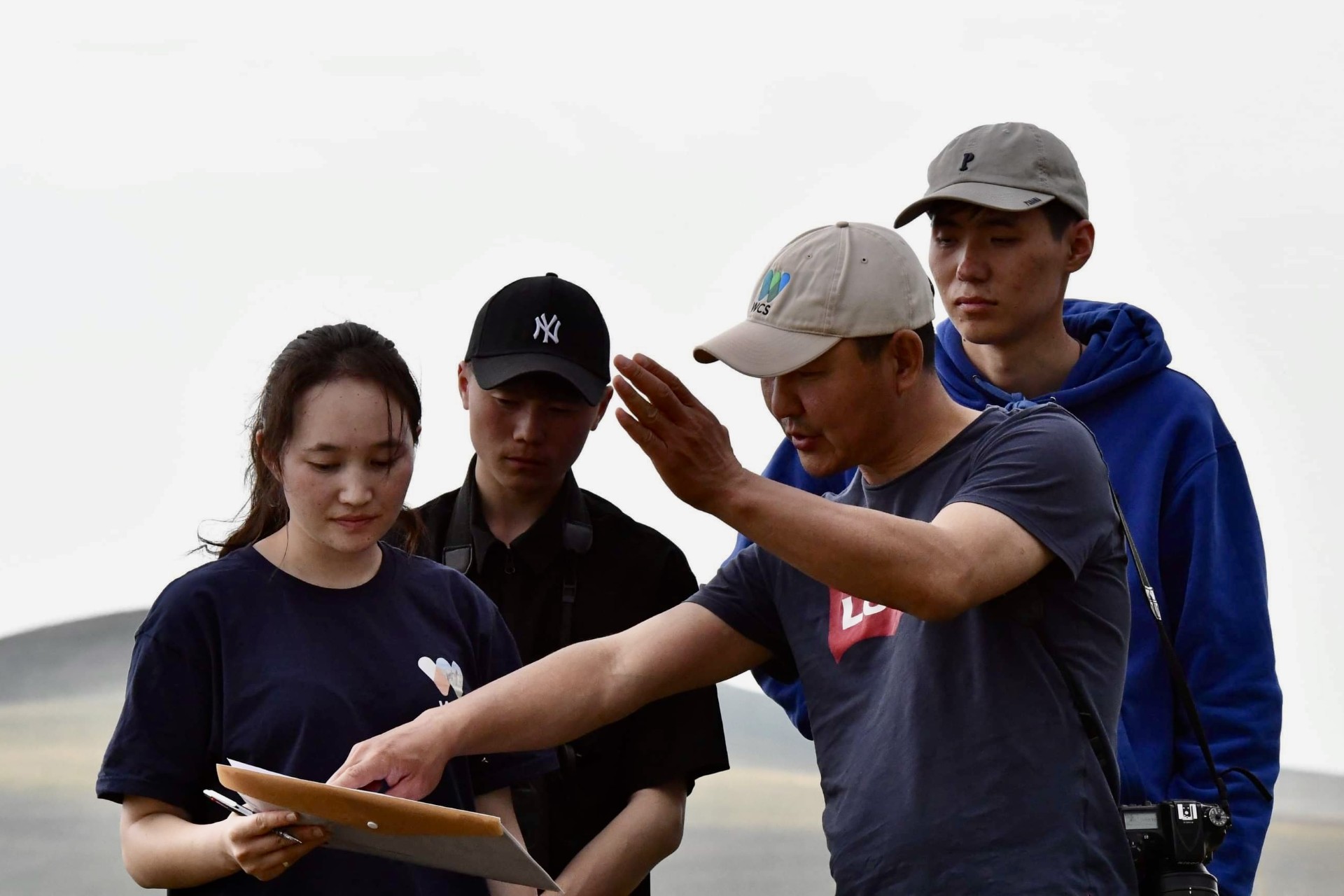 Date/Time:
Date/Time:
Friday, 20th September at 14:00 pm (Bishkek time)
Location:
ZOOM, to join this talk, REGISTER HERE
Please note:
- If you have never used Zoom before, we recommend that you try the link 10 minutes before the start of the lecture.
- Please feel free to write questions in the comment area and there will be time for questions/discussion at the end of the talk.
- Please note that the session will be recorded and later featured on the SLN website. If you have concerns about this please let us know before the session

